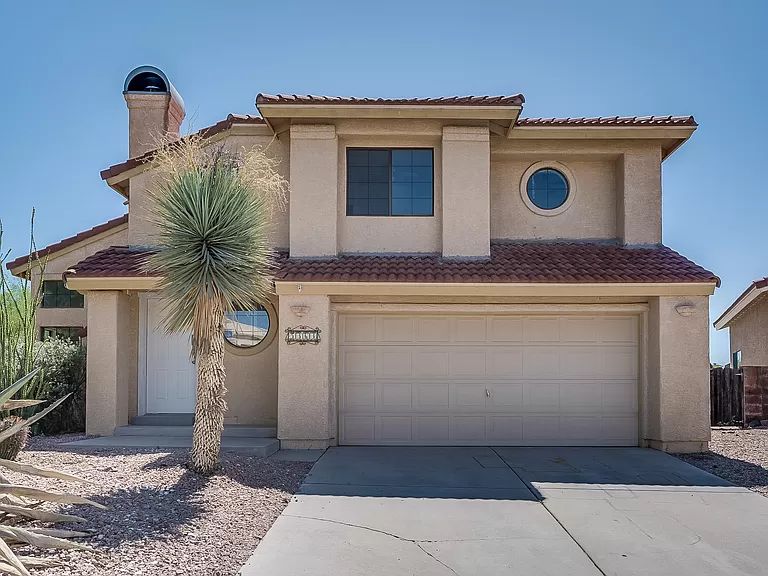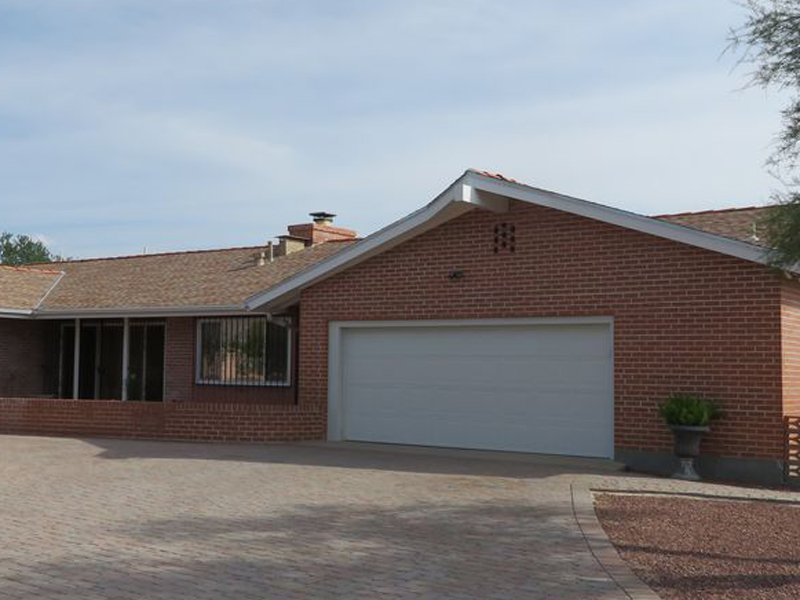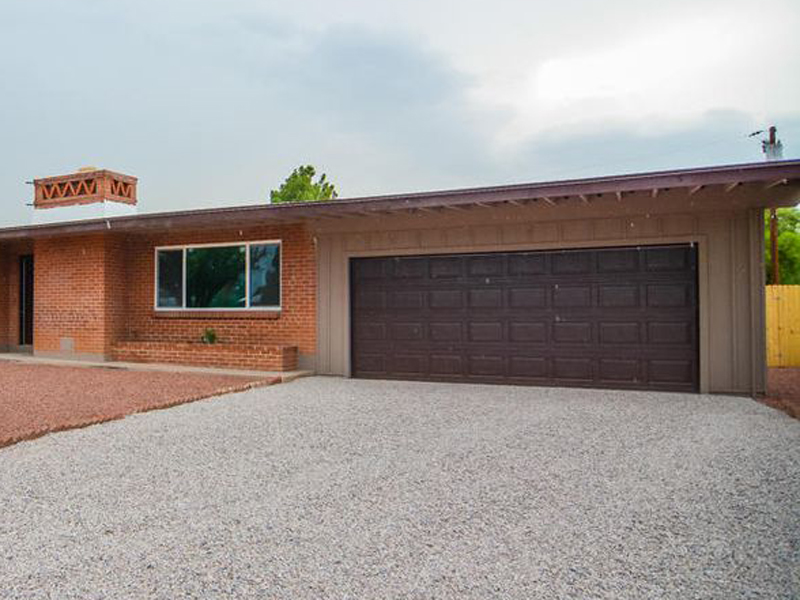Is Your Garage Door Stuck? Right here's What to Do Very first
When your garage door will not open up, start with these important safety checks before attempting any kind of repair work. Initially, ensure no one is standing near the door which automobiles are clear of the opening. Try to find apparent signs of damage like busted panels, bent tracks, or hanging cords. If you see a snapped spring or seriously harmed parts, stop immediately and call a professional—-- these repairs need specific devices and proficiency to handle securely.

Examine These 6 Points Before Calling an Expert
Prior to thinking you require expensive repair services, run through this quick diagnostic checklist that resolves most garage door troubles:
-
Source of power: Verify the opener is plugged in and the electrical outlet is working
-
Remote batteries: Replace dead batteries in your push-button control
-
Hands-on lock: Inspect if a person unintentionally engaged the hand-operated lock
-
Obstructions: Look for debris obstructing the door's course or sensors
-
Emergency situation launch: Make sure the red emergency cable hasn't been pulled
-
Breaker: Verify the garage circuit hasn't stumbled
These simple checks fix around 70% of garage door issues without requiring specialist intervention.
10 Common Factors Your Garage Door Will Not Open Up
Understanding why your garage door opener isn't functioning aids you select the appropriate remedy. Right here are one of the most regular causes home owners encounter:
Dead remote batteries stand for the most basic solution—-- when batteries die, the remote can not send signals to the opener. Power interruptions or stumbled breakers cut power to the electric motor. Damaged springtimes prevent the door from raising appropriately and call for immediate expert interest. Sensing unit imbalance reasons security systems to obstruct door procedure. Track obstructions stop rollers from relocating efficiently. Electric motor overload triggers automatic shutoffs when the opener detects resistance. Limitation button problems puzzle the opener concerning door position. Cable damage interferes with the training device. Weather-related problems impact door motion throughout severe temperature levels. Part wear from age progressively decreases system performance.
Problem # 1: Dead Remote Control Batteries
When your wall surface button works however your remote does not, dead batteries are generally the perpetrator. The majority of garage door remotes use either 3-volt lithium or 12-volt alkaline batteries. Remove the back cover of your remote and inspect the battery type. Replace with fresh batteries and test the remote. If it still does not work, you may require to reprogram it to your opener. Consult your opener's manual for particular reprogramming directions, as the procedure varies by supplier.
Trouble # 2: Power Supply Issues
Garage door power troubles commonly stem from loosened links or tripped circuits. Inspect that the opener is securely linked into its electrical outlet—-- resonance can loosen up connections in time. Examine the electrical outlet with another tool to confirm it's working. Analyze your home's breaker box for stumbled circuits, particularly if you've experienced storms or power variations. GFCI outlets may have tripped and require resetting. If the opener has power yet will not respond, the problem most likely lies in other places in the system.
Issue # 3: Broken or Damaged Springs
Damaged garage door springs are amongst the most harmful elements to manage. If you listen to a loud bang from your garage or notice the door really feels extremely hefty when attempting to lift manually, a spring has actually likely broken. Torsion springs run flat above the door, while extension springs rest on either side. Never ever attempt spring repair work on your own—-- these parts keep tremendous stress that can create serious injury or death. Expert substitute commonly costs $150-$300 yet guarantees your safety and security.
Issue # 4: Blocked Safety And Security Sensing Units
Modern garage doors feature safety and security sensing units that avoid closure when items are found. These sensing units can stop the door from opening if they're unclean, misaligned, or obstructed by particles. Clean sensor lenses with a soft fabric and make sure nothing blocks the undetectable beam in between them. Examine that sensing units are appropriately lined up—-- a lot of have indication lights that show connection standing. Sensor troubles commonly solve with straightforward cleaning and change.
Trouble # 5: Track Obstructions or Damage
Garage door tracks guide rollers as the door goes up and down. Dust, debris, old oil, or little objects can jam the system. Inspect tracks visually and get rid of any type of blockages with a brush or towel. Search for dents, bends, or bending that could hinder smooth operation. Minor track adjustments are feasible for useful home owners, however considerable damage needs expert fixing to stop more problems or security dangers.
Trouble # 6: Garage Door Opener Motor Issues
When the garage door motor runs yet the door does not relocate, numerous issues could be liable. The electric motor may be overwhelmed and shutting down as a precaution. Gear wear, especially in older devices, can avoid appropriate operation. Chain or belt drive issues affect power transmission. If you listen to unusual grinding, clicking, or humming sounds, stop utilizing the opener quickly. Motor fixings frequently set you back greater than substitute, specifically for systems over ten years old.
Step-by-Step Do It Yourself Troubleshooting Overview
Follow this systematic strategy to garage door fixing while prioritizing security throughout the process:
Action 1: Examine the wall switch first. If it works yet the remote doesn't, concentrate on remote issues. If neither works, check power supply.
Action 2: Take a look at the hand-operated release cable. If it's been drawn, the opener is disengaged from the door. Press the trolley back to reconnect.
Step 3: Manually test what causes garage door cables to snap the door by disengaging the opener and trying to lift the door by hand. It ought to move smoothly and remain in location when half-open.
Tip 4: Inspect noticeable components for damage, paying special interest to springs, wires, and tracks.
Step 5: Examine all safety functions consisting of sensors, limitation buttons, and auto-reverse functions.
Step 6: Test various controls (remote, wall switch, keypad) to separate the problem resource.
Always put on shatterproof glass and job gloves when performing evaluations, and never effort repair services on springs or high-tension parts.
When to Call a Professional vs. do it yourself Solutions

Understanding when to call a garage door professional versus attempting do it yourself repairs protects both your safety and security and your wallet. Deal with these issues yourself: dead remote batteries, power supply problems, minor track cleaning, sensor cleaning and positioning, and fundamental lubrication.
Never ever attempt these repair work on your own: spring substitute or modification, cable repair services, major track realignment, electrical circuitry problems, opener motor substitute, or any type of fixing involving high-tension components. Expert specialists have specialized devices, training, and insurance coverage to deal with dangerous repairs safely.
Consider fixing expenses versus replacement prices, specifically for doors over 15 years of ages. Modern garage doors provide far better safety features, power performance, and dependability than older versions.
Emergency Situation Garage Door Solutions
When you're stuck to a garage door that won't open up and require prompt accessibility, comply with these emergency procedures:
Handbook Operation: Pull the red emergency situation release cable to disengage the opener. This permits hands-on operation however requires appropriate strategy to prevent injury. Lift the door slowly and uniformly, utilizing leg muscle mass as opposed to your back. Most household doors consider 100-150 pounds, making them convenient for a lot of adults.
Short-term Fixes: If the door opens up manually yet will not stay up, prop it open with sawhorses or clamps—-- never utilize your body or lorries as supports. For doors that won't shut entirely, guarantee the opening is protected if you need to leave.
Emergency Service: Numerous garage door firms offer 24/7 emergency situation service for situations involving protection concerns, caught lorries, or total system failures. While a lot more pricey than regular service phone calls, emergency situation repair work provide immediate services when required most.
Safety Warning: What NOT to Do
Garage door safety and security calls for understanding dangerous repair services that should never be attempted by home owners:
Never ever attempt to fix springs—-- they keep sufficient energy to cause fatal injuries when they snap or are improperly dealt with. Do not require a stuck door—-- this can damage the opener, tracks, or door panels, creating extra expensive troubles. Avoid bypassing safety features—-- sensing units and auto-reverse devices stop major injuries and home damage.
Don't ignore unusual sounds—-- grinding, scratching, or banging audios indicate problems that aggravate gradually. Never utilize the door if cords are torn or broken—-- the door can fall unexpectedly. Do not attempt electric fixings unless you're a certified electrical expert—-- garage door openers make use of both 120V family current and low-voltage control circuits.

Preventive Upkeep to Prevent Future Problems
Routine garage door upkeep prevents most usual troubles and expands system life-span significantly:
Regular monthly Tasks: Visual examination of all parts, testing auto-reverse security features, checking and tightening hardware, and cleansing tracks and sensors.
Quarterly Tasks: Oiling all relocating parts with suitable garage door lubricating substance, testing handbook procedure, and inspecting climate securing.
Annual Tasks: Professional evaluation and tune-up, spring adjustment if needed, and opener maintenance including belt or chain change.
Seasonal Jobs: Getting ready for climate extremes, inspecting insulation, and readjusting opener settings for temperature level adjustments.
Consistent upkeep prices far less than emergency repair services and makes certain trustworthy procedure year-round.
Garage Door Will Not Open Up Frequently Asked Questions
Why won't my garage door open with the remote however works with the wall surface button?
This usually indicates dead remote batteries, signal interference, or the need to reprogram the remote. Examine batteries first, then consult your opener guidebook for reprogramming guidelines.
Can I manually open my garage door if the power is out?
Yes, pull the red emergency situation release cord to disengage the opener, after that raise the door by hand. Be prepared for the door's complete weight and lift with correct technique to stay clear of injury.
Exactly how do I know if my garage door spring is damaged?
Indicators include a loud bang from the garage, the door feeling incredibly heavy when raising by hand, visible spaces in the springtime coils, or the door just opening a few inches prior to quiting.
Is it safe to utilize my garage door if it won't open up right?
No, partial operation indicates mechanical problems that could get worse unexpectedly. Quit utilizing the door and have it inspected by a specialist to avoid more damages or injury.
What should I do if my garage door opens up but will not shut?
Inspect safety and security sensing units for blockages or imbalance, examine the tracks for particles, and test the auto-reverse function. If these do not resolve the trouble, seek advice from an expert.
How much does it cost to deal with a garage door that won't open?
Expenses vary commonly depending upon the trouble: battery replacement ($5-$10), specialist diagnosis ($50-$100), springtime replacement ($150-$300), or opener replacement ($200-$500).
Can weather impact my garage door's ability to open up?
Yes, extreme cold can enlarge lubes and impact metal elements, while warm can cause growth issues. The majority of issues settle as temperature levels normalize, yet persistent issues might need expert focus.
Why does my garage door open up a couple of inches then stop?
This typically suggests damaged springs, limitation button issues, or track blockages. The opener's safety and security features quit procedure when resistance is identified, stopping damage to the motor or door.
Obtain Specialist Help for Complicated Issues
When do it yourself troubleshooting doesn't solve your garage door troubles, specialist technicians give the experience and tools needed for safe, lasting repairs. Certified specialists detect issues properly, make use of manufacturer-approved components, and provide service warranties on their job.
Expert services include: detailed system evaluations, springtime and wire substitute, opener repair work and substitute, track placement and substitute, electric troubleshooting, and emergency situation solution phone calls.
What to expect: upfront rates, certified and insured professionals, same-day service for many repair services, and follow-up upkeep referrals.
A lot of garage door companies supply cost-free quotes for significant repair services and can give instant services for immediate issues influencing home security or lorry accessibility.
Getting Your Garage Door Working Again
A garage door that will not open up does not need to destroy your day or break your budget plan. Start with basic troubleshooting steps like examining power, changing batteries, and analyzing for apparent obstructions. Lots of problems have fast DIY services that bring back typical procedure within minutes.
Nonetheless, recognize when professional aid is needed—-- particularly for spring-related problems, electrical issues, or facility mechanical failings. Attempting hazardous repairs yourself runs the risk of major injury and frequently develops a lot more expensive issues.
Routine maintenance avoids most garage door concerns and ensures trusted operation for years to come. When troubles do occur, resolve them promptly to stay clear of more costly repairs and maintain your home's safety and comfort. Whether you require a simple battery substitute or full system overhaul, options exist to get your garage door working efficiently once again.